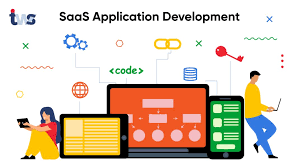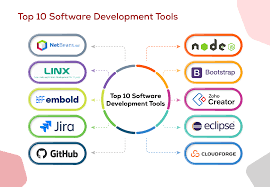The Essential Role of SaaS Developers in Modern Software Solutions
The Role of SaaS Developers in the Modern Tech Landscape
Software as a Service (SaaS) has revolutionized the way businesses and individuals access and use software applications. SaaS developers play a crucial role in creating, maintaining, and improving these cloud-based solutions that have become integral to our daily lives.
What is a SaaS Developer?
A SaaS developer is a professional who specializes in designing and developing software applications that are delivered over the internet as a service. These developers focus on creating scalable, secure, and user-friendly applications that can be accessed from any device with an internet connection.
Skills Required for SaaS Developers
SaaS developers need a diverse set of skills to excel in their roles. Some key skills include:
- Proficiency in programming languages such as JavaScript, Python, or Ruby
- Knowledge of cloud computing platforms like AWS or Azure
- Experience with web development frameworks like React or Angular
- Understanding of database management systems
- Strong problem-solving and analytical skills
- Ability to collaborate with cross-functional teams
The Impact of SaaS Developers
SaaS developers play a vital role in driving innovation and efficiency across various industries. By creating software solutions that are accessible on-demand and continuously updated, they enable businesses to streamline their operations, reduce costs, and improve user experiences.
Furthermore, SaaS developers contribute to the growth of the digital economy by developing solutions that empower organizations to adapt quickly to changing market demands and scale their operations effectively.
In Conclusion
SaaS developers are at the forefront of technological advancements, shaping the future of software delivery and consumption. Their expertise and dedication are instrumental in enabling businesses to leverage the power of cloud-based applications for enhanced productivity and competitiveness in today’s fast-paced digital world.
8 Essential Tips for SaaS Developers: Enhancing Skills and Delivering Quality Solutions
- Stay updated with the latest trends and technologies in SaaS development.
- Focus on creating scalable and flexible software solutions.
- Prioritize user experience to ensure customer satisfaction.
- Implement robust security measures to protect sensitive data.
- Collaborate effectively with cross-functional teams for seamless development processes.
- Regularly test and debug your software to maintain high quality standards.
- Seek feedback from users to continuously improve your SaaS products.
- Document your code and processes for better scalability and future maintenance.
Stay updated with the latest trends and technologies in SaaS development.
To excel as a SaaS developer, it is essential to stay updated with the latest trends and technologies in SaaS development. By keeping abreast of industry advancements, developers can enhance their skills, adapt to evolving market demands, and leverage cutting-edge tools to create innovative and competitive software solutions. Continuous learning and exploration of new technologies not only ensure relevance in the fast-paced tech landscape but also pave the way for achieving excellence in SaaS development.
Focus on creating scalable and flexible software solutions.
When it comes to SaaS development, a key tip for developers is to prioritize creating scalable and flexible software solutions. By focusing on scalability, developers ensure that their applications can handle increased workloads and user demands without compromising performance. Additionally, building flexibility into the software allows for easier customization and adaptation to evolving business needs. This emphasis on scalability and flexibility not only enhances the user experience but also future-proofs the application for long-term success in a dynamic digital landscape.
Prioritize user experience to ensure customer satisfaction.
To excel as a SaaS developer, it is crucial to prioritize user experience in order to guarantee customer satisfaction. By focusing on creating intuitive, user-friendly interfaces and seamless interactions within the software applications, developers can enhance the overall usability and appeal of their products. Prioritizing user experience not only leads to higher customer satisfaction but also fosters loyalty and retention among users, ultimately contributing to the success and growth of the SaaS platform.
Implement robust security measures to protect sensitive data.
It is crucial for SaaS developers to implement robust security measures to safeguard sensitive data. By prioritizing data protection, developers can ensure the confidentiality and integrity of information stored in cloud-based applications. Implementing encryption, access controls, regular security audits, and staying informed about the latest cybersecurity threats are essential practices to mitigate risks and build trust with users. Maintaining a strong security posture not only protects valuable data but also upholds the reputation and credibility of SaaS solutions in an increasingly digital landscape.
Collaborate effectively with cross-functional teams for seamless development processes.
Effective collaboration with cross-functional teams is essential for SaaS developers to ensure seamless development processes. By working closely with professionals from diverse backgrounds such as design, product management, and quality assurance, developers can leverage a wide range of expertise and perspectives to create innovative and high-quality software solutions. This collaborative approach not only fosters creativity and efficiency but also helps in addressing potential challenges early on, leading to smoother development cycles and successful product launches.
Regularly test and debug your software to maintain high quality standards.
Regularly testing and debugging software is essential for SaaS developers to uphold high quality standards. By conducting thorough testing procedures, developers can identify and rectify any issues or bugs in the software, ensuring that it functions as intended and delivers a seamless user experience. Proactive testing not only enhances the overall quality of the software but also helps prevent potential disruptions or errors that could impact users. By prioritizing regular testing and debugging processes, SaaS developers can maintain reliability, performance, and customer satisfaction with their software solutions.
Seek feedback from users to continuously improve your SaaS products.
Seeking feedback from users is essential for SaaS developers to continuously improve their products. By actively listening to user suggestions, concerns, and experiences, developers can gain valuable insights into areas that require enhancement or modification. This feedback loop not only fosters a sense of collaboration and engagement with users but also enables developers to prioritize features that resonate most with their target audience. Ultimately, incorporating user feedback into the product development process helps ensure that SaaS solutions evolve in alignment with user needs and preferences, leading to greater satisfaction and loyalty among customers.
Document your code and processes for better scalability and future maintenance.
Documenting your code and processes is a crucial tip for SaaS developers to ensure better scalability and future maintenance of their software applications. By providing clear and detailed documentation, developers can facilitate seamless collaboration, troubleshooting, and onboarding of new team members. Documented code and processes also serve as valuable resources for future updates, enhancements, and bug fixes, enabling developers to maintain the integrity and efficiency of their SaaS solutions as they evolve over time.




